News


Georgia Tech points to what’s next, and how the Institute will contribute. “Discovering life beyond Earth would fundamentally change humanity’s perspective on our place in the universe,” says Earth and Atmospheric Sciences' Jennifer Glass. “…

Lieberman, a professor in the School of Chemistry and Biochemistry, is the inaugural chair of the Kelly Sepcic Pfeil, Ph.D. Faculty Endowment Fund. The College of Sciences…

“I don’t think most people are aware of wildlife on campus,” shares Emily Weigel, senior academic professional in the School of Biological Sciences. Atlanta is often called the “city in a forest” because of its lush canopy of trees, uncommon for…
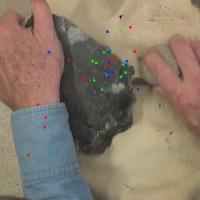
It was a necessary skill for early humans: how to make tools out of rocks. It's a demanding skill to learn, yet it's helping Georgia Tech researchers fill in the gaps when it comes to the science of how we learn complex motor skills —…

The duo of Earth and Atmospheric Sciences associate professors are among 20 Scialog® winners of $1.1 million in funding from four organizations, including NASA, for new approaches that could transform our understanding of the habitability of…
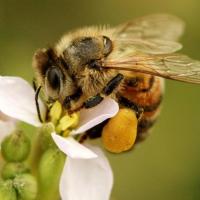
New research led by Georgia Tech’s College of Engineering finds that honey bees have developed a way to transform pollen particles into a viscoelastic pellet, allowing them to transport pollen efficiently, quickly, and reliably to their hive.…
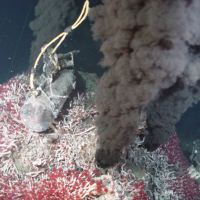
Chris Reinhard, School of Earth and Atmospheric Sciences associate professor, co-authors a new theory about the Earth's phosphorus cycle, which could give scientists a better chance to detect signs of life on other rocky planets in the…

Three Ph.D. students — two of them from the College of Sciences — will make up the inaugural cohort of a new Georgia Tech training program designed to give biomedical researchers a deeper dive into quantatitive data sciences.

Joshua Weitz, School of Biological Sciences professor and Tom and Marie Patton Chair heads to France to hold Blaise Pascal International Chair of Excellence, continue virus research, and teach.

Researchers are working to develop simple, low-cost, legged robots capable of linking and unlinking to accomplish tasks, such as gap traversal, stair climbing, and object transport over uneven terrains.
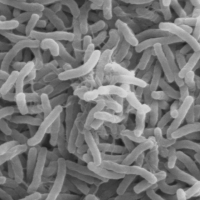
A team of interdisciplinary scientists from Georgia Tech led by Brian Hammer has found a previously unknown tool in the arsenal of cholera bacterium — a toxin that impairs a cell’s overall membrane and looks like none described prior.
Eric Schumacher, professor in the School of Psychology, teaches that, with intentional practice, people can improve their happiness level regardless of the circumstances and their individual predisposition.

Traffic and wind regularly cause low frequency vibrations to ripple through bridge building materials such as steel and concrete. This energy would normally travel away from its source before dissipating — but School of Mathematics' Rachel Kuske…

The NIH-funded program is designed to train a new generation of biomedical researchers and thought leaders to harness the data revolution.
We’ve seen robots take to the air, dive beneath the waves, and perform all sorts of maneuvers on land. Now, physicists at Georgia Tech and engineers at UC Santa Barbara are exploring the shallow underground world with a fast, steerable, burrowing…

SPRUCE experiment study shows elevated levels of greenhouse gases emerging from carbon-rich peatlands
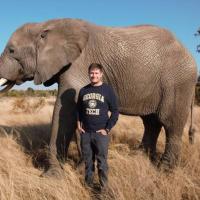
New research from Georgia Tech finds that elephants dilate their nostrils in order to create more space in their trunks, allowing them to store up to 5.5 liters of water. They can also suck up three liters per second — a speed 30 times faster…

School of Biological Sciences’ Jeffrey Skolnick and Hongyi Zhou are part of an award-winning NIH effort to create innovative, AI-powered platforms for discovering new pain management drugs — and identify immediate solutions.

Despite a long-held hypothesis that oxygen determined the size of large, complex multicellular organisms during the early Earth, researchers have found the early rise in global oxygen, should have, “in fact strongly constrain[ed] the…
